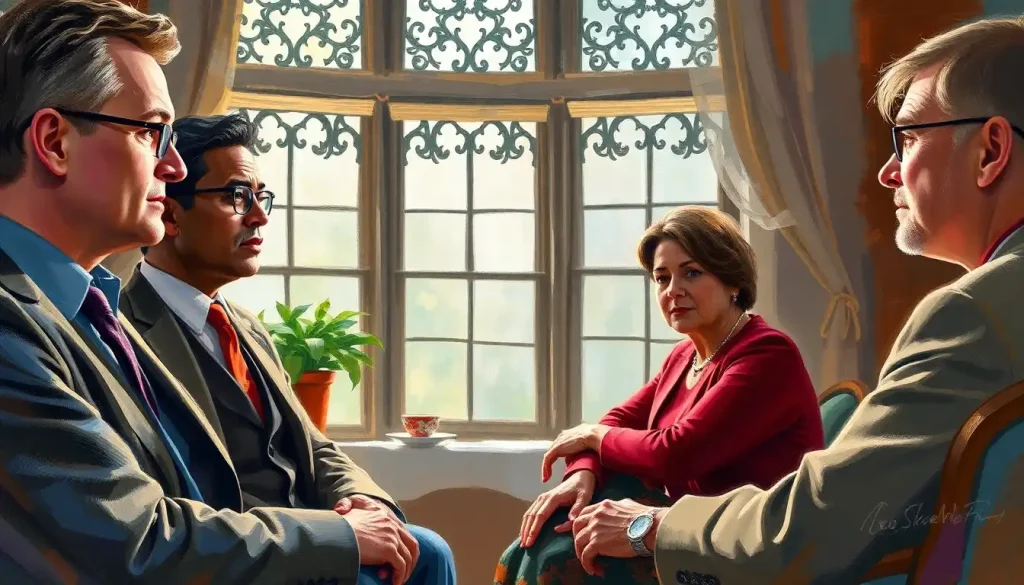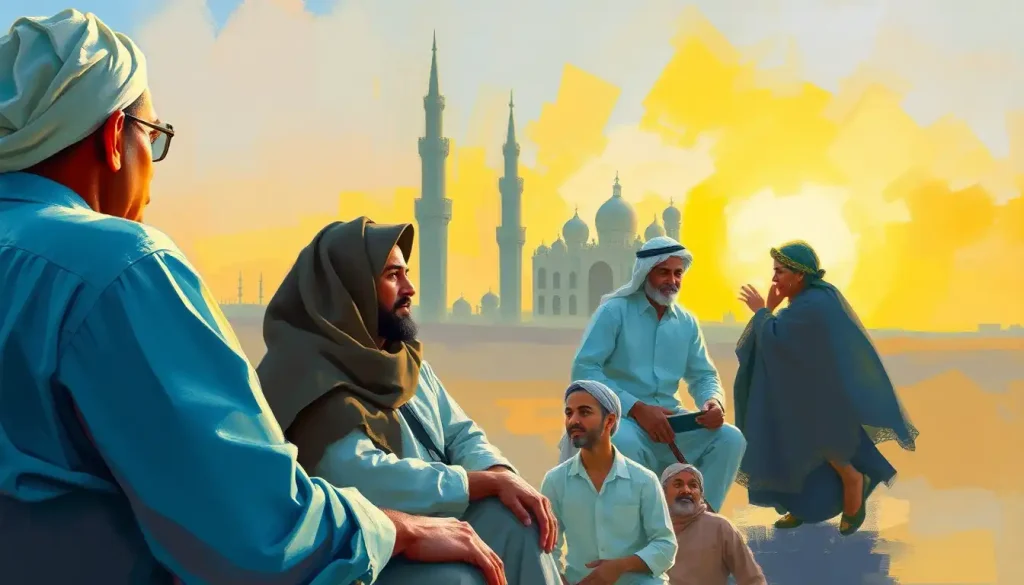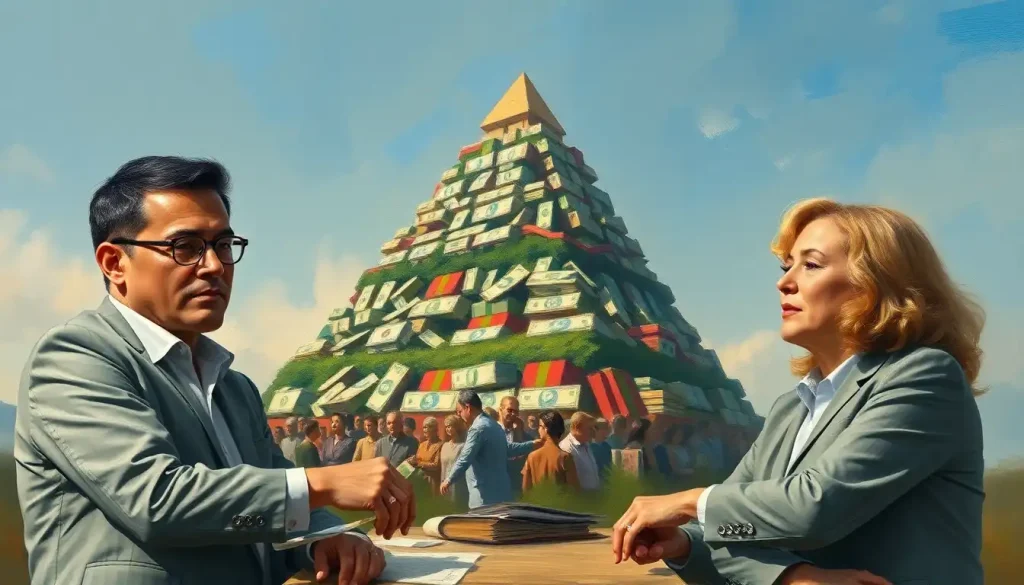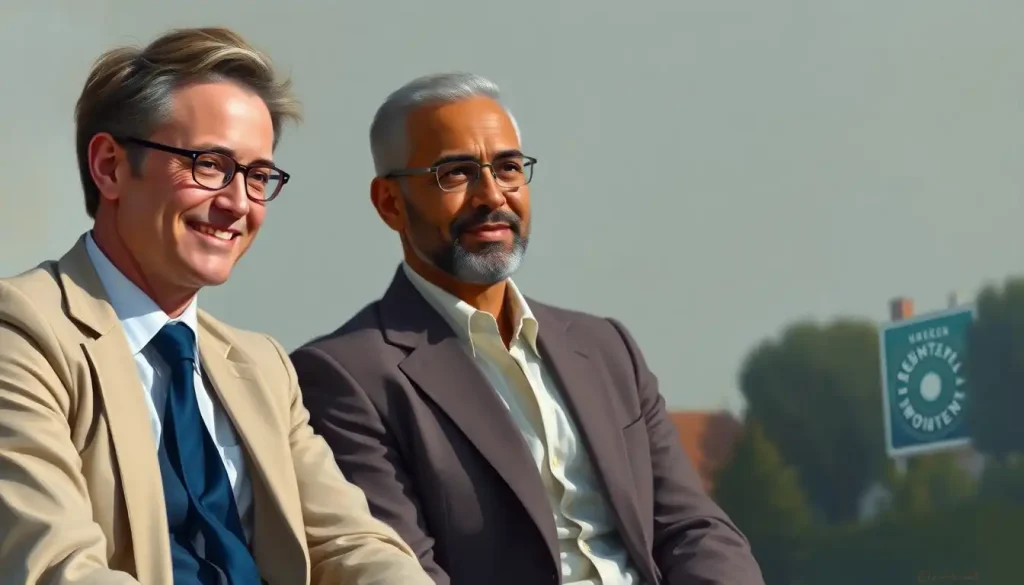Between sprawling favelas and gleaming skyscrapers lies a tale of staggering wealth, crushing poverty, and untapped potential that makes South America’s largest economy one of the most fascinating case studies in modern economics. Brazil, a country of continental proportions, has long been a land of contrasts, where immense natural resources and vibrant culture coexist with deep-rooted social inequalities. This complex tapestry of economic realities has shaped Brazil’s journey from a colonial outpost to a major player on the global stage.
Brazil’s economic narrative is one of boom and bust cycles, marked by periods of rapid growth followed by challenging recessions. From the coffee-fueled prosperity of the early 20th century to the industrial boom of the 1950s and the “economic miracle” of the 1970s, Brazil has experienced dramatic shifts in its fortunes. Today, as the ninth-largest economy in the world by nominal GDP, Brazil stands at a crossroads, grappling with the legacy of its past while striving to unlock its full potential.
Understanding Brazil’s wealth distribution is crucial not only for grasping the nation’s internal dynamics but also for comprehending its role in the global economy. The stark contrasts between the country’s wealthiest citizens and its poorest communities offer insights into the challenges and opportunities that emerging economies face in an increasingly interconnected world. As we delve deeper into Brazil’s economic landscape, we’ll uncover the factors that have shaped its wealth, explore the complexities of its social fabric, and examine the prospects for future growth and development.
The Pillars of Brazil’s Wealth: Natural Resources and Industrial Might
At the heart of Brazil’s economic story lies its abundant natural resources. The country is blessed with vast reserves of minerals, including iron ore, gold, and bauxite, as well as extensive agricultural lands and the world’s largest tropical rainforest. These resources have been instrumental in fueling Brazil’s growth and attracting foreign investment. The mining sector, in particular, has been a significant contributor to the country’s wealth, with companies like Vale S.A. becoming global players in the industry.
Agriculture, too, plays a pivotal role in Brazil’s economy. The country is a leading exporter of soybeans, coffee, sugar, and beef, among other commodities. The agricultural sector has undergone significant modernization in recent decades, transforming Brazil into an agricultural powerhouse. This transformation has not only boosted exports but also contributed to the development of related industries, such as agribusiness and food processing.
Beyond its natural bounty, Brazil has developed a diverse industrial base that forms another pillar of its economic strength. The country boasts a robust manufacturing sector, producing everything from automobiles and aircraft to textiles and consumer goods. São Paulo, the country’s economic heartland, exemplifies this industrial might, with its sprawling factories and bustling business districts.
Brazil’s role in global trade extends far beyond raw materials and agricultural products. The country has made significant strides in high-tech industries, with Embraer, the world’s third-largest aircraft manufacturer, serving as a prime example of Brazilian innovation and competitiveness on the world stage. This diversification of exports has helped Brazil weather economic storms and reduce its vulnerability to commodity price fluctuations.
Foreign investment has played a crucial role in Brazil’s wealth creation, particularly since the economic liberalization of the 1990s. Multinational corporations, attracted by the country’s large domestic market and abundant resources, have poured billions of dollars into various sectors of the Brazilian economy. This influx of capital has spurred job creation, technology transfer, and economic growth, although it has also raised concerns about foreign control of key industries.
The Great Divide: Wealth Distribution in Brazil
Despite its impressive economic achievements, Brazil remains one of the world’s most unequal societies. The stark contrast between the opulent neighborhoods of São Paulo or Rio de Janeiro and the sprawling favelas that surround them is a vivid illustration of the country’s wealth gap. This disparity is not just a social issue; it has profound implications for Brazil’s economic development and political stability.
Income inequality in Brazil is rooted in historical factors, including the legacy of slavery, uneven land distribution, and limited access to quality education. While the country has made significant progress in reducing extreme poverty in recent decades, the gap between the rich and the poor remains stubbornly wide. This inequality is reflected in various aspects of Brazilian life, from healthcare and education to housing and job opportunities.
Regional disparities add another layer of complexity to Brazil’s wealth distribution. The industrialized Southeast, centered around São Paulo and Rio de Janeiro, is significantly wealthier than the rural Northeast or the Amazon region. These regional imbalances have led to internal migration patterns that have shaped Brazil’s urban landscape and contributed to the growth of informal settlements in major cities.
To address these challenges, successive Brazilian governments have implemented social programs aimed at reducing poverty and inequality. The most famous of these is Bolsa Família, a conditional cash transfer program that has lifted millions of Brazilians out of extreme poverty. Such initiatives have contributed to the rise of a new middle class in Brazil, often referred to as the “C class,” which has become a significant economic force in its own right.
The expansion of the middle class has had a profound impact on Brazil’s economy, driving consumer spending and creating new markets for goods and services. This growing segment of the population has also changed the political landscape, demanding better public services and greater economic opportunities. However, the sustainability of these gains remains a concern, particularly in the face of economic downturns and political instability.
The Elite: Brazil’s Billionaires and Business Dynasties
At the apex of Brazil’s economic pyramid sits a small but influential group of ultra-wealthy individuals and families. Wealth Market: Navigating the Global Landscape of Affluence and Investment reports often feature Brazilian billionaires, highlighting their outsized influence on the country’s economy. These tycoons have built their fortunes in diverse sectors, from banking and media to retail and natural resources.
One of the most prominent figures in this elite circle is Jorge Paulo Lemann, co-founder of 3G Capital and a major shareholder in global brands like Anheuser-Busch InBev and Kraft Heinz. Lemann’s story is emblematic of Brazil’s entrepreneurial spirit and its increasing integration into the global economy. Other notable billionaires include Joseph Safra, who built a banking empire, and Luiza Helena Trajano, who transformed a small family business into Magazine Luiza, one of Brazil’s largest retail chains.
Family-owned businesses play a significant role in Brazil’s economy and wealth accumulation. Many of the country’s largest companies, including Itaú Unibanco and Votorantim Group, have their roots in family enterprises that have been passed down through generations. These family dynasties often wield considerable influence not only in the business world but also in politics and philanthropy.
Speaking of philanthropy, Brazil’s wealthy elite has increasingly embraced social responsibility and charitable giving. Initiatives like the Lemann Foundation, established by Jorge Paulo Lemann, focus on improving education and fostering entrepreneurship in Brazil. However, the scale of philanthropic activity in Brazil still lags behind that of countries like the United States, reflecting both cultural differences and the challenges of operating in a complex regulatory environment.
Despite their wealth and influence, Brazil’s economic elite faces its own set of challenges. The country’s complex tax system, bureaucratic red tape, and political instability can make it difficult to do business and preserve wealth. Moreover, public scrutiny and calls for greater wealth redistribution have put pressure on the ultra-rich to justify their positions and contribute more to society.
Investing in Brazil: Opportunities and Pitfalls
For investors looking to tap into Brazil’s potential, the country offers a range of opportunities across various sectors. Emerging industries such as fintech, renewable energy, and e-commerce are attracting significant attention and investment. Brazil’s large and increasingly connected population makes it an attractive market for digital services and technologies.
Real estate has long been a popular investment option in Brazil, particularly in major urban centers and tourist destinations. The country’s growing middle class and ongoing urbanization trends have fueled demand for housing and commercial properties. However, investors need to be aware of the complexities of Brazil’s real estate market, including legal and regulatory challenges.
Wealth South: Exploring Financial Prosperity in the Southern United States may offer insights into regional investment strategies that could be applicable to Brazil’s diverse economic landscape. Just as the American South has seen significant economic development in recent decades, Brazil’s less developed regions may present unique investment opportunities.
Brazil’s stock market, the B3 (formerly BM&F Bovespa), offers another avenue for wealth building. The exchange has seen increased foreign participation in recent years, although it remains relatively volatile compared to more established markets. For those looking to invest in Brazilian companies, American Depositary Receipts (ADRs) listed on U.S. exchanges provide an accessible option.
However, investing in Brazil is not without its risks. The country’s economy is susceptible to global commodity price fluctuations, and political instability can have significant impacts on market performance. Currency risk is also a factor, as the Brazilian real has experienced considerable volatility against major currencies like the U.S. dollar. Additionally, corruption scandals and regulatory changes can create uncertainty for both domestic and foreign investors.
Looking Ahead: Brazil’s Economic Future
As Brazil looks to the future, several factors will shape its economic trajectory and wealth creation potential. Economic reforms, including efforts to simplify the tax system and reduce bureaucracy, could unlock new opportunities for growth and investment. However, the implementation of such reforms often faces political hurdles and resistance from vested interests.
Technological advancements are poised to play a crucial role in Brazil’s economic development. The country has a vibrant startup ecosystem, particularly in tech hubs like São Paulo and Belo Horizonte. Innovations in areas such as agritech, clean energy, and digital finance could drive productivity gains and create new sources of wealth.
Environmental concerns loom large over Brazil’s economic future, particularly regarding the Amazon rainforest. The challenge of balancing economic development with environmental preservation is one that Brazil must address to ensure sustainable long-term growth. Initiatives promoting sustainable agriculture and responsible resource extraction could offer a path forward.
Brazil’s position in the global economy remains strong, despite recent challenges. The country’s membership in the BRICS group (Brazil, Russia, India, China, and South Africa) underscores its importance as an emerging market powerhouse. As global economic power continues to shift, Brazil has the potential to play an increasingly influential role on the world stage.
Conclusion: Navigating Brazil’s Economic Complexities
Brazil’s wealth landscape is a tapestry of contrasts, opportunities, and challenges. From the bustling financial centers of São Paulo to the remote corners of the Amazon, the country’s economic story is one of immense potential tempered by persistent inequalities. Understanding this complex picture is crucial for anyone seeking to engage with South America’s largest economy.
Addressing wealth inequality remains a critical challenge for Brazil’s sustainable growth. While social programs have made significant strides in reducing extreme poverty, more work is needed to create a truly inclusive economy. Education, infrastructure development, and continued economic reforms will be key to unlocking opportunities for a broader segment of the population.
For investors and entrepreneurs, Brazil offers a wealth of opportunities, from its burgeoning tech scene to its vast natural resources. However, navigating the country’s economic landscape requires patience, local knowledge, and a long-term perspective. Those who can successfully tap into Brazil’s potential may find themselves at the forefront of one of the world’s most dynamic emerging markets.
As we look to the future, Brazil’s economic journey continues to evolve. The country’s resilience in the face of challenges, its innovative spirit, and its rich cultural heritage all contribute to its unique position in the global economy. Whether Brazil can fully capitalize on its potential and address its longstanding issues remains to be seen, but one thing is certain: the story of Brazil’s wealth will continue to captivate and intrigue observers around the world.
Country Wealth: Analyzing Global Economic Power and Prosperity often highlights Brazil as a key player in the emerging markets landscape. Its journey offers valuable lessons for other developing nations seeking to balance growth with social equity. Similarly, Wealth in Africa: Unveiling the Continent’s Economic Potential and Challenges may find parallels with Brazil’s experience in leveraging natural resources and addressing inequality.
As we’ve seen, Brazil’s economic narrative is far from simple. It’s a story of tremendous achievements and persistent challenges, of vast wealth and stark poverty. Understanding this complex reality is essential for anyone looking to engage with Brazil, whether as an investor, policymaker, or simply an interested observer. The country’s future prosperity will depend on its ability to harness its strengths, address its weaknesses, and navigate the ever-changing global economic landscape.
Argentina’s Wealth: Exploring the Economic Landscape and Potential offers an interesting comparison to Brazil, as both countries grapple with similar challenges in their quest for sustainable economic development. Meanwhile, Costa Rica Wealth: Exploring Economic Prosperity in the Land of Pura Vida provides a contrasting example of how a smaller Latin American nation has approached economic growth and social development.
In conclusion, Brazil’s wealth story is far from over. As the country continues to evolve and adapt to global changes, it will undoubtedly face new challenges and opportunities. For those willing to engage with its complexities, Brazil offers a fascinating case study in economic development, social change, and the pursuit of prosperity in an increasingly interconnected world.
References:
1. Fishlow, A. (2011). Starting Over: Brazil Since 1985. Brookings Institution Press.
2. Reid, M. (2014). Brazil: The Troubled Rise of a Global Power. Yale University Press.
3. World Bank. (2021). Brazil Overview. https://www.worldbank.org/en/country/brazil/overview
4. Instituto Brasileiro de Geografia e Estatística (IBGE). (2021). Brazil in Figures. https://biblioteca.ibge.gov.br/visualizacao/periodicos/2/bn_2021_v29.pdf
5. Rocha, S. (2013). Transferências de renda no Brasil: o fim da pobreza? Elsevier.
6. Baer, W. (2013). The Brazilian Economy: Growth and Development. Lynne Rienner Publishers.
7. Economist Intelligence Unit. (2021). Brazil Country Report.
8. Forbes. (2021). Brazil’s Billionaires List.
9. Banco Central do Brasil. (2021). Annual Report. https://www.bcb.gov.br/en/publications/annualreport
10. World Economic Forum. (2021). The Global Competitiveness Report. https://www.weforum.org/reports/the-global-competitiveness-report-2020












Would you like to add any comments? (optional)